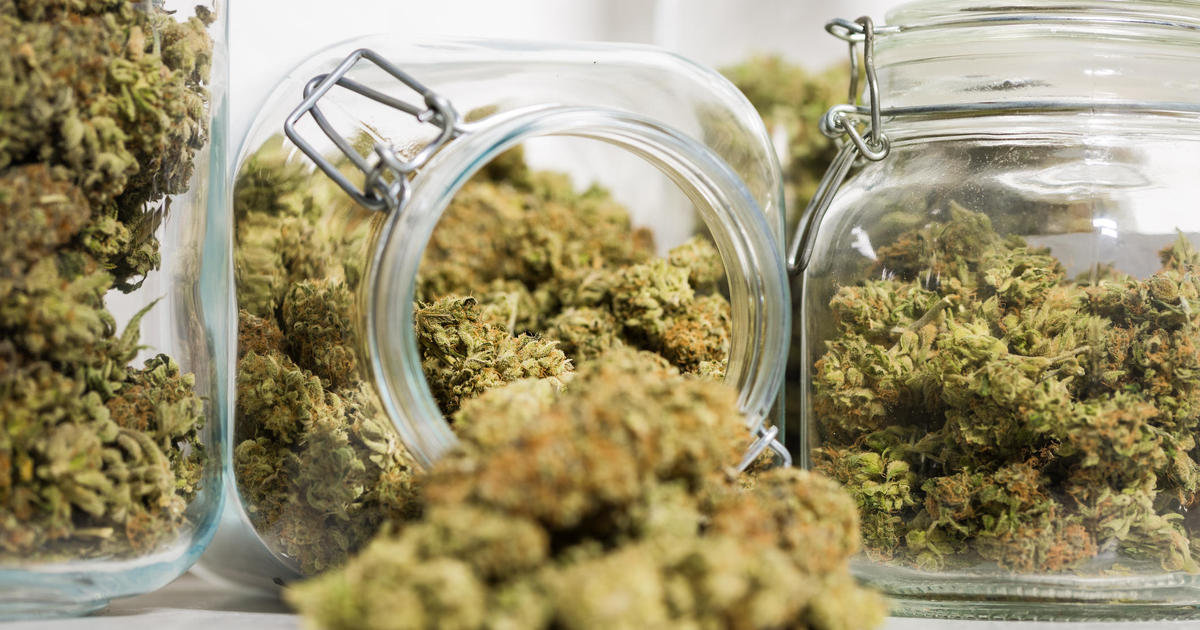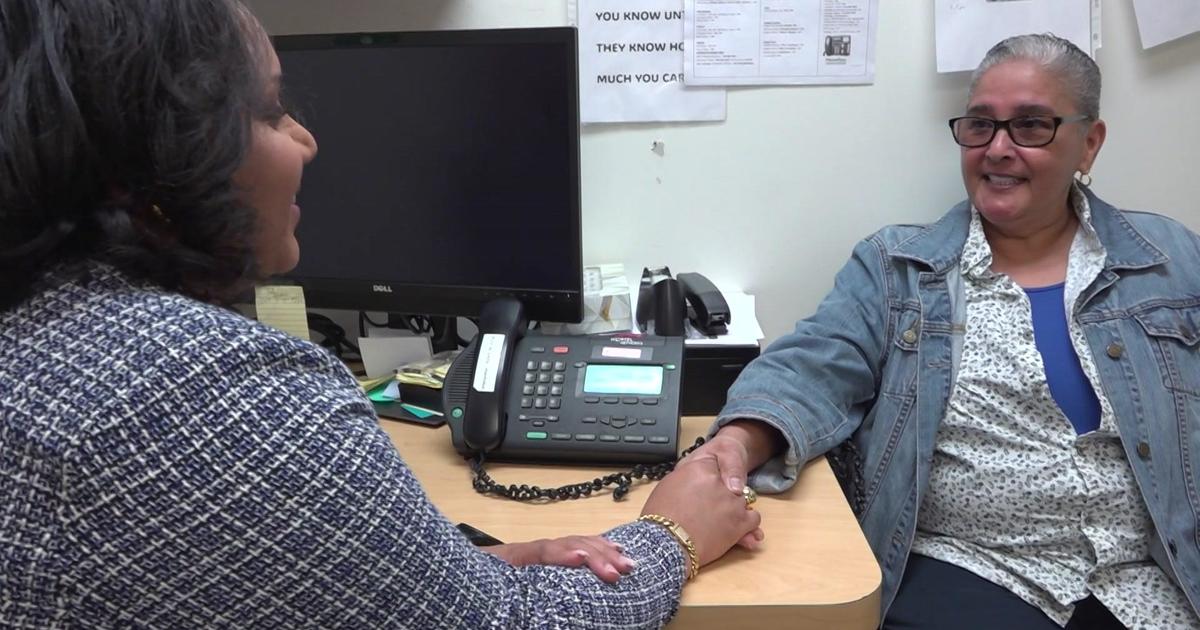AIDS Walk: Medical Experts Concerned About Long-Term Impact Of COVID-19 Pandemic On Battle Against HIV/AIDS
NEW YORK (CBSNewYork) -- The AIDS Walk is this weekend.
The world's focus on fighting the coronavirus pandemic may have derailed progress in the battle to end the HIV/AIDS epidemic.
On Tuesday, CBS2's Hazel Sanchez spoke with a group doing all it can to keep it on track.
The waiting room at GMHC, formerly known as Gay Men's Health Crisis, in Midtown is empty.
The world's first service organization for HIV/AIDS was forced to pivot all its in-person programming to remote during the pandemic.
Josie Thiele is in charge of GMHC's nutrition programming.
"A program that GMHC started pretty quickly was our wellness callers. So, we had staff members calling all of the clients who would utilize our services," Thiele said.
CONTINUING COVERAGE: AIDS Walk New York
GMHC serves some 10,000 people living with or affected by HIV/AIDS every year by providing services, including HIV testing, food and nutrition programs, mental health support, and substance abuse counseling.
"The human touch is really what makes GMHC so special, the caring and compassion. You can't do that over video conferencing and so that has definitely been a missing element of our operations over the last year," said Poul Olson, GMHC chief communications and development officer.
CORONAVIRUS PANDEMIC
- Ask CBS2's Dr. Max Your Vaccine Questions
- COVID Vaccine FAQ From CDC
- Vaccination Sites In New York City | Call 877-VAX-4NYC
- Track NYC Vaccinations By Zip Code
- Find A New York City Testing Site Near You
- Check NYC Testing Wait Times
- Resources: Help With Unemployment, Hunger, Mental Health & More
- Remote Learning Tools For Students And Parents At Home
- Complete Coronavirus Coverage
And while GMHC has been successful in its outreach efforts, some medical experts are concerned social distancing mandates, limited hours at health clinics, and fear of increased susceptibility to COVID-19 may have deterred countless people suffering from HIV/AIDS from getting the testing or treatment they need.
READ MORE: Then And Now: Reflecting On The AIDS Epidemic With Leaders Of GMHC
Dr. Oni Blackstock is a primary care and HIV doctor and researcher.
"The same groups that we see disproportionately impacted by HIV are very similar to the same groups that we see harmed disproportionately by COVID-19. So you think about Black and Latino people here in the United States," Blackstock said.
"Certain people have lost jobs, they lost housing and so some of the HIV testing and, you know, some of it would be coming for appointments may not necessarily be a top priority when people are also just trying to survive day to day," Blackstock added.
Data reported to the Centers for Disease Control showed one commercial laboratory conducting nearly 700,000 fewer HIV tests and about 5,000 fewer confirmed HIV diagnoses, from March to September of 2020, compared to the same time period in 2019.
Blackstock worries the last year may have changed the course of ending the HIV/AIDS epidemic.
"It's not until the end of this, or maybe a year later, that we'll understand the full impact of this pandemic on the lives of people living with HIV," Blackstock said.
Determined not to suffer a setback, GMHC sent out self-test kits to clients and people who requested them.
It has also reinvented its meals program, providing grab-and-go groceries, including fresh produce, for clients to pick up.
GMHC is looking forward to the days of filling its cafeteria with clients enjoying a warm meal, camaraderie and conversation.
"We're proud that we're able to sustain our services through these very challenging times," Olson said.
And the hope is that efforts like this are enough to keep the progress in battling HIV/AIDS from losing ground.
GMHC has already begun reintroducing some in-person programming. Its HIV testing center is now open two days a week, by appointment only.



